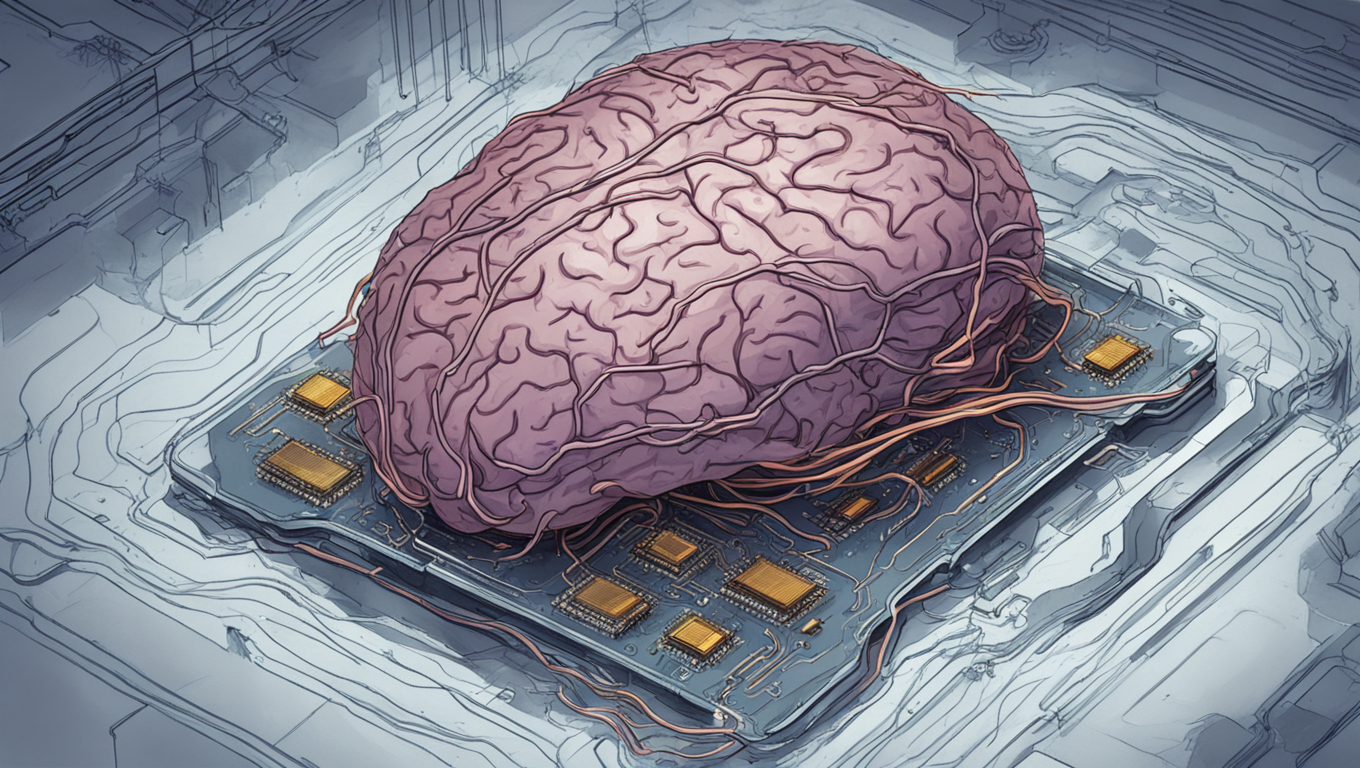Hong Kong Scientists on a Mission to Unlock the Power of AI Inspired by the Human Brain
In a bid to take artificial intelligence (AI) to new heights, scientists in Hong Kong are embarking on a groundbreaking project that draws inspiration from the ultimate model of intelligence—the human brain. This ambitious endeavor aims to create AI systems capable of lifelong learning and performing complex tasks, two feats at which the human brain excels. To achieve this, the researchers are focused on developing hardware that is more efficient and powerful than anything currently available.
Leading the team is Li Can, an assistant professor at the University of Hong Kong’s Department of Electrical and Electronic Engineering. With over a decade of experience in the field, Li is passionate about creating AI circuits and systems that mimic the inner workings of the human brain. He emphasizes that there is a fundamental difference between the brain and computers—our brains can tolerate defects and continue functioning, unlike computers that rely on flawless components.
Li explains, “We can learn from experience, unlike computers and powerful AI. Humans are also able to reason based on vague information, while computers require clear instructions.” This ability to reason with incomplete information sets humans apart from machines. However, computers excel in other areas, such as scientific calculations and repetitive operations, making them more suitable for certain tasks.
In their pursuit of emulating the human brain, Li and his team have turned their attention to a cutting-edge memory device known as a memristor. This microelectronic platform has the extraordinary capability to replicate the behavior of biological synapses and neurons—the pathways of the human brain. Li likens each chip to a newborn baby with its own unique DNA, determining its traits. Through extensive training, these chips could become powerful tools with the potential to revolutionize not only AI training but also graphics processing units (GPUs).
Speaking about the potential impact of brain-inspired devices, Li states, “It will be a technology different from conventional computers. It will also be a promising addition to speeding up graphics processing units [GPUs].” GPUs are essential for training AI systems, but they come with limitations—training a large language model with 175 billion parameters can take up to 36 years on a conventional GPU setup. More energy-efficient hardware, such as memristors, will be crucial to meet the growing computational needs of AI.
One major advantage of using memristors is that they enable computation directly within memory, eliminating the need for data transfers between memory and processing units. This closely imitates how the brain processes information where it is stored. Li envisions a future where memristor chips can offload AI tasks from energy-intensive data centers and transfer them to devices like smartphones and watches, enhancing energy efficiency. These chips could also find applications in health monitoring implants and expedite virus genome sequencing.
“To make a wearable sensor to monitor diseases, for example, the device needs to be highly energy efficient without compromising its functionality—hopefully, it could run years on a single charge,” Li explains. Additionally, the sequencing of virus genomes, which currently takes days to weeks, could be significantly accelerated with the use of memristor chips.
Li’s groundbreaking work has recently been recognized with a HK$5 million (US$640,000) grant from the Croucher Foundation. With half of the funds allocated to hiring new team members and the rest dedicated to supporting experiments and cutting-edge research, Li is confident that Hong Kong and the University of Hong Kong have the potential to attract top talent and drive meaningful advancements in AI.
As the team of Hong Kong scientists takes on the challenge of unlocking the power of AI through brain-inspired hardware, they are paving the way for a future where machines can learn, reason, and perform tasks with the remarkable efficiency and adaptability of the human brain. With memristor technology poised to revolutionize AI systems, the boundaries of what machines can achieve are set to be pushed to new frontiers.





Use the share button below if you liked it.